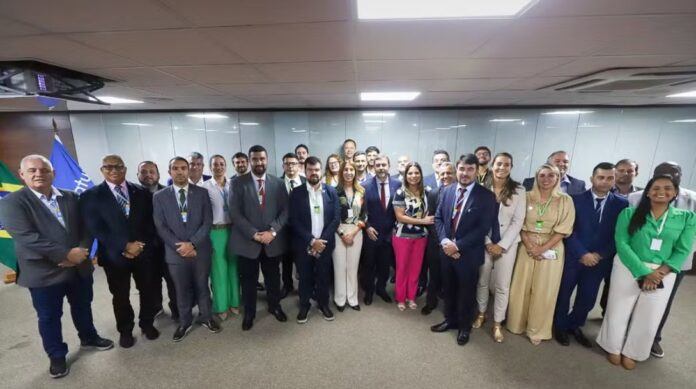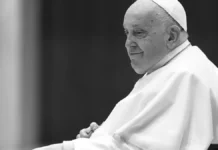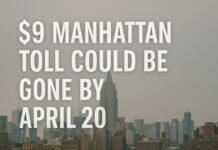
Mayors from across Brazil have arrived in Brasilia for the Meeting of New Mayors, filling hotels, bars, and restaurants to capacity.
While local businesses celebrate the economic surge, the city faces traffic congestion and logistical challenges.
Meanwhile, discussions on tourism and infrastructure take center stage, with many leaders eyeing opportunities tied to the upcoming Carnival.
Hotels and Restaurants at Full Capacity
With thousands of officials in Brasilia, hotels in the central region hit full occupancy, forcing many attendees to seek accommodations in areas like Águas Claras, nearly 20 kilometers away.
O Encontro de Novos Prefeitos e Prefeitas 2025 começou com muito diálogo! E o MTur está pronto para transformar municípios em grandes destinos turísticos! ✨
No nosso estande, o gestor descobre dicas de como desenvolver o turismo de forma inteligente e muito mais. 🗺️#Turismo pic.twitter.com/Go0Wkx0Owj
— Ministério do Turismo (@MTurismo) February 12, 2025
Gabrielly Ferreira, reservations manager at Grand Bittar Hotel, confirmed that all six properties in the chain are fully booked. “January and February are usually slow, so we even plan staff vacations, but this event changed everything,” she said. Temporary workers were hired to meet demand, especially in housekeeping and customer service.
Bruno Oliveira, from the Mercure Brasilia Lider Hotel, reported similar conditions. “We expected an increase, but not a full house. The demand completely exceeded expectations,” he said.
The restaurant industry is also thriving.
Zeli Ribeiro Costa, owner of the iconic Lake’s restaurant, saw a 20% increase in business over the last few days. “We have guests from all over—Rio, Amazonas, everywhere. Some will leave after the event, but others will stay to meet with politicians,” he explained.
Traffic Jams and Overcrowding in the Capital
While the economic impact benefits businesses, the influx of visitors has caused gridlock in key areas. The Eixo Monumental, one of busiest avenues in Brasilia, has been particularly affected.
Roberto Pereira, a daily commuter, voiced his frustration. “It took me twice as long to get to work. There’s no parking, and the streets are packed. They should have chosen a different venue,” he said.
App-based drivers have also felt the effects. Carlos Santos, a ride-hailing driver, noted an increase in requests but struggled with delays. “I had a trip that usually takes 20 minutes turn into an hour. It’s great for business, but the traffic is killing us,” he said.
Tourism and Carnival on the Agenda
Amid the congestion, mayors are focused on long-term tourism development. Discussions include boosting regional tourism beyond major hubs like Rio de Janeiro and São Paulo.
Marcelo Freixo, president of Embratur, emphasized the importance of leveraging Carnival as a nationwide opportunity, not just for Rio. “Rio’s Carnival is a global event, but every region has something to offer. The goal is to extend visitor stays beyond the main attractions,” he stated.
Estou na sede da Embratur, em Brasilia, com o presidente Marcelo Freixo, buscando mais investimentos para nossa cidade, que é tão rica em belezas naturais e tem um grande potencial turístico. Conversamos sobre o turismo internacional e o fortalecimento de Macaé nesse cenário. pic.twitter.com/4qH2I8ulPm
— Welberth Rezende (@welberthmacae) February 13, 2025
Macaé’s mayor, Welberth Rezende, highlighted his city’s potential. “Macaé is known for business travel, but we have natural parks and beaches that should be part of Brazil’s tourism map,” he said.
Past initiatives, such as the Sugar Route in Rio’s northern region, have shown success in boosting tourism in smaller cities.
Former Quissamã mayor Fátima Pacheco pointed out that structured marketing efforts can shift visitor patterns. “We created 45 tourism products and trained professionals to turn our region into a destination, not just a stop,” she said.
Mayors Plans Are About Tourism Growth, Economic Boosts, and Carnival Expansion
Mayors are using the event to find ways to bring more tourists and money to their cities.
Leaders want to make sure this kind of economic boost happens all year long, not just during big events like Carnival.
1. Bringing Tourists to More Cities, Not Just Rio
Most tourists visiting Brazil go to Rio de Janeiro or São Paulo, but mayors want to spread tourism across the country.
- Macaé’s mayor, Welberth Rezende, wants to attract visitors not just for oil and business travel but also for beaches, parks, and nature spots.
- Other mayors from the Serrana and Costa Verde regions want to promote food, history, and cultural sites so tourists have reasons to stay longer.
2. Keeping Visitors in Brazil for More Days
Right now, many people visit Brazil only for a few days during Carnival, then leave. Mayors want to give them more reasons to stay longer.
- One idea is to create travel routes that connect different cities. For example, someone visiting Rio for Carnival could also visit other towns nearby for food, nature, or historic tours.
- A past project called the Sugar Route helped bring tourists to smaller towns in Rio’s northern region. Mayors want to copy that success in other areas.
3. Fixing Roads, Hotels, and Airports to Handle More Tourists
Some cities don’t have enough hotels, good roads, or public transport to handle a large number of visitors.
- Mayors are asking for more investment to build hotels, improve roads, and make it easier for tourists to visit smaller cities.
- In Brasilia, local business owners complained about bad traffic and lack of parking during the mayors’ meeting. Many other cities have the same problem when big events happen.
4. Expanding Carnival and Creating More Events
Carnival is already Brazil’s biggest event, but mayors want to turn it into a way to attract tourists all year long.
- Some cities outside of Rio are planning their own Carnival celebrations, so tourists who can’t go to Rio still get a Carnival experience.
- Mayors also want to promote festivals, concerts, and cultural events before and after Carnival, so tourists stay longer and spend more money.
5. Getting Money and Support to Make These Plans Happen
Tourism projects need investment. Mayors want to work with businesses and the government to make sure cities have enough hotels, transport, and attractions.
- Private businesses might invest in building more hotels and attractions.
- International investors are also interested in eco-tourism and sustainable travel, which could help protect nature while bringing in tourists.
With Carnival coming soon, mayors are hoping to use the festival as a jumpstart for bigger tourism plans that will bring money to more cities, not just Rio.

















